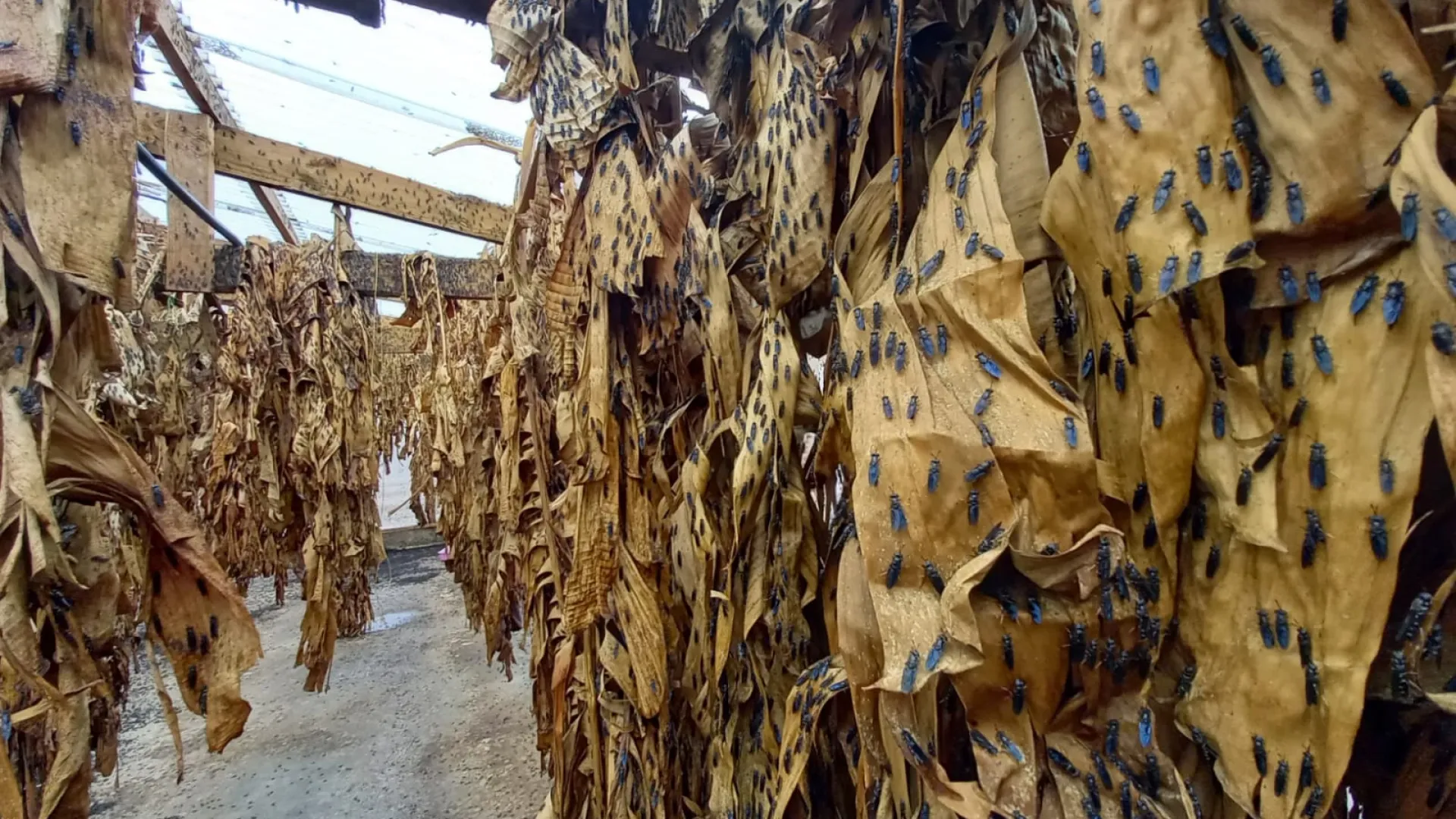Reducing food waste with sustainable animal feed
Chanzi collects food waste and converts it into sustainable animal feed through the production of protein-rich larvae of the black soldier fly. It also produces organic fertiliser from the manure of the larvae.
The project has been put forward by the World Wide Fund for Nature Netherlands (WWF NL) which manages the DFCD’s Origination Facility with SNV Netherlands Development Organisation to develop new projects for the investment fund. WWF signed a €349,060 grant funding agreement with Chanzi.
Chanzi addresses three major problems
Chanzi confronts some of the biggest problems Africa faces: food insecurity, food waste, and environmental degradation. Africa’s population is growing rapidly. Consequently, the demand for meat and other foodstuffs is growing significantly. The supply of animal feed can’t keep up with production and continues to push up prices.
Farmers feed their animals with protein from soya beans and fish meal, the production of which increases pressure on the environment. The global fish stock is fully used, overused, or in crisis, while the production of soya is a major contributor to global forest degradation. Farming black soldier flies produces 142 times more protein per acre than soya beans and consumes significantly less water.
At the same time, a lot of the food produced in this region (around 40%) is spoiled due to poor post-harvest storage across the supply chain. Food waste is the single largest contributor to municipal landfills, where it generates methane gas and nitrous oxide, both very potent greenhouse gases.
Circular and replicable business model
Chanzi collects low-grade food waste using a network of waste aggregation agents from households, local businesses, hotels, schools, and partner farms. These agents are paid per kilogram for the waste they deliver to Chanzi’s production site. The company itself also collects waste directly from large food production companies that generate a lot of organic waste.
At their production sites, the food and agricultural waste is fed to the larvae. These are sold whole dried or ground to farmers as a sustainable source of animal feed protein. By selling organic fertiliser as a by-product, Chanzi promotes increased crop yields and long-term soil enhancement.
Chanzi sells their larvae protein at a lower price than traditional sources of animal feed protein, offering an additional incentive for farmers to make the switch to this sustainable alternative.
For example, the price of fish meal which is currently the most common protein source in conventional chicken feed in East Africa, has doubled in the last 5 years, now at around USD1.60/kg. Chanzi can produce and sell dried black soldier fly larvae at USD1.00/kg. Additionally, chicken farmers using Chanzi’s feed report that their birds are bigger and healthier and produce stronger eggs.
Scaling up
The company is planning to have seven production sites and two research & development sites fully operational across Kenya, Tanzania, and South Africa by 2023. To support the scaling of the business, Chanzi is looking to invest in their research & development, robust waste aggregation systems, carbon credit methodology as well as in developing additional products such as biochar. The DFCD grant supports the company in these activities.
As its business model and productions sites can be easily replicated across Africa, the company aims to expand to nearly 50 production sites in five countries by 2027. To achieve this, it is seeking an investment of around €10 million, half of which it hopes to receive through a loan from the DFCD. The project has also received interest from Unilever and ABInBev as additional investors.
Key impact metrics
- Avoided greenhouse gas emissions for six facilities– 84.6 tons CO2e daily
- 150 indirect and 23 direct jobs (90% youth and 50% women) created per facility
- Improved income for livestock farmers through a 37.5% reduction in cost of animal feed protein
Keiron Brand, Regional Lead WWF DFCD Africa: “We are excited to support Chanzi in this very interesting industry; Chanzi, and other insect protein groups, are developing an appealing model to manage urban, industrial, and agricultural waste more efficiently and effectively. Coupled with this, they are also helping to reduce the drivers behind the protein crunch (the increasing pressure on land, water and seas to produce protein for the growing world population).”
Andrew Wallace, CEO Chanzi: “We are truly excited about our partnership with DFCD. DFCD is happy to support certain activities such as entomological research & development, sustainable waste management and community engagement which do not appeal to standard investors who often seek to maximise return on investment through capital expenditure. These ancillary activities guarantee the long-term health of our business, the insect protein industry at large and our planet.
Contact
For more information, Keiron Brand, Regional Lead WWF DFCD Africa at kbrand@wwf.nl.
In case you have any grievances in relation to this project of the DFCD’s Origination Facility, please contact servicedesk@wwf.nl.

